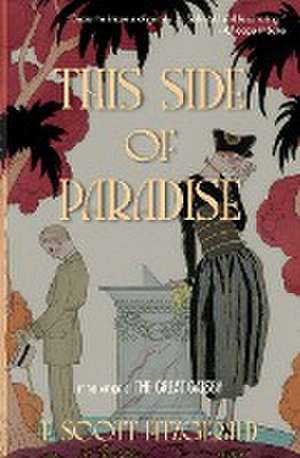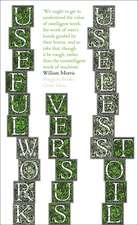Common Sense
Autor Thomas Paine Editat de E. Haldeman-Juliusen Limba Engleză Paperback – 5 dec 2017
| Toate formatele și edițiile | Preț | Express |
|---|---|---|
| Paperback (61) | 27.00 lei 22-36 zile | |
| West Margin Press – 9 dec 2020 | 27.00 lei 22-36 zile | |
| CREATESPACE – | 36.95 lei 22-36 zile | |
| – | 38.43 lei 22-36 zile | |
| CREATESPACE – | 38.43 lei 22-36 zile | |
| – | 38.43 lei 22-36 zile | |
| CreateSpace Independent Publishing Platform – | 39.60 lei 22-36 zile | |
| CREATESPACE – | 39.89 lei 22-36 zile | |
| Penguin Books – sep 2004 | 40.55 lei 25-31 zile | +11.99 lei 6-12 zile |
| CREATESPACE – | 41.93 lei 22-36 zile | |
| – | 43.75 lei 22-36 zile | |
| CreateSpace Independent Publishing Platform – | 44.13 lei 22-36 zile | |
| CREATESPACE – | 44.95 lei 22-36 zile | |
| – | 44.95 lei 22-36 zile | |
| CreateSpace Independent Publishing Platform – | 45.47 lei 22-36 zile | |
| CREATESPACE – | 46.00 lei 22-36 zile | |
| CREATESPACE – | 46.59 lei 22-36 zile | |
| CREATESPACE – | 46.88 lei 22-36 zile | |
| stanfordpub.com – 23 noi 2018 | 47.06 lei 22-36 zile | |
| Iap - Information Age Pub. Inc. – 31 ian 2009 | 47.10 lei 22-36 zile | |
| CREATESPACE – | 52.92 lei 22-36 zile | |
| – | 55.60 lei 22-36 zile | |
| – | 56.98 lei 22-36 zile | |
| CreateSpace Independent Publishing Platform – 31 iul 2009 | 60.07 lei 22-36 zile | |
| Penguin Books – 24 noi 1982 | 62.15 lei 22-36 zile | +4.10 lei 6-12 zile |
| – | 64.61 lei 22-36 zile | |
| – | 70.74 lei 22-36 zile | |
| Penguin Books – 27 aug 2012 | 71.78 lei 22-36 zile | |
| G&D MEDIA – 24 apr 2019 | 75.64 lei 22-36 zile | |
| CREATESPACE – | 77.45 lei 22-36 zile | |
| CREATESPACE – | 80.92 lei 22-36 zile | |
| KUPERARD (BRAVO LTD) – 31 iul 2002 | 82.70 lei 22-36 zile | |
| CREATESPACE – | 92.66 lei 22-36 zile | |
| Value Classic Reprints – 18 oct 2016 | 27.25 lei 38-44 zile | |
| – | 38.63 lei 43-57 zile | |
| Echo Library – 26 oct 2020 | 41.72 lei 38-44 zile | |
| CREATESPACE – | 43.50 lei 43-57 zile | |
| Independent Publishing – 16 oct 2013 | 47.04 lei 43-57 zile | |
| – | 50.21 lei 43-57 zile | |
| COSIMO CLASSICS – 31 mai 2006 | 51.20 lei 43-57 zile | |
| Watchmaker Publishing – 19 oct 2010 | 51.23 lei 43-57 zile | |
| CREATESPACE – | 52.53 lei 43-57 zile | |
| Tribeca Books – 30 iun 2011 | 53.99 lei 43-57 zile | |
| Tribeca Books – 31 oct 2010 | 54.05 lei 43-57 zile | |
| SC Active Business Development SRL – 23 apr 2017 | 55.48 lei 38-44 zile | |
| Weyland Easterbrook – 29 mai 2020 | 56.18 lei 38-44 zile | |
| Stonewell Press – | 56.32 lei 43-57 zile | |
| – | 58.86 lei 43-57 zile | |
| A & D Publishing – 8 noi 2007 | 59.50 lei 43-57 zile | |
| NuVision Publications – 25 noi 2008 | 61.05 lei 38-44 zile | |
| Megalodon Entertainment LLC. – 22 mai 2010 | 63.84 lei 43-57 zile | |
| – | 65.03 lei 43-57 zile | |
| Alpha Editions – 28 feb 2019 | 72.23 lei 43-57 zile | |
| Bibliotech Press – 2 aug 2018 | 74.84 lei 43-57 zile | |
| Indoeuropeanpublishing.com – 31 mai 2011 | 74.93 lei 43-57 zile | |
| Simon & Brown – 31 oct 2010 | 78.37 lei 38-44 zile | |
| GARDNER PR – 30 sep 2007 | 82.28 lei 43-57 zile | |
| Historic Publishing – 5 dec 2017 | 82.78 lei 43-57 zile | |
| Les prairies numériques – 19 sep 2020 | 103.61 lei 43-57 zile | |
| TREDITION CLASSICS – 31 oct 2011 | 108.17 lei 43-57 zile | |
| TREDITION CLASSICS – 31 oct 2011 | 108.17 lei 43-57 zile | |
| Cambridge University Press – 9 noi 2011 | 248.07 lei 43-57 zile | |
| Hardback (9) | 66.79 lei 22-36 zile | |
| Applewood Books – 30 iun 2002 | 66.79 lei 22-36 zile | |
| 12th Media Services – 13 noi 2017 | 92.70 lei 43-57 zile | |
| – | 108.83 lei 43-57 zile | |
| Suzeteo Enterprises – 3 ian 2018 | 113.04 lei 43-57 zile | |
| A & D Publishing – 3 apr 2018 | 115.30 lei 43-57 zile | |
| – | 137.61 lei 38-44 zile | |
| True Sign Publishing House – 20 ian 2023 | 151.03 lei 43-57 zile | |
| Weyland Easterbrook – 29 mai 2020 | 151.13 lei 38-44 zile | |
| Bibliotech Press – 2 aug 2018 | 165.99 lei 43-57 zile |
Preț: 82.78 lei
Nou
15.84€ • 17.22$ • 13.32£
Carte tipărită la comandă
Livrare economică 21 aprilie-05 mai
Specificații
ISBN-10: 1642270091
Pagini: 88
Dimensiuni: 152 x 229 x 5 mm
Greutate: 0.14 kg
Editura: Historic Publishing
Notă biografică
Descriere
Struggling under oppressive laws, high taxes, and the heavy hand of King George the Third's rule, the people living in early America longed for freedoms seemingly out of reach. Talk of rebellion stayed in bars and in the secret of homes, never really given serious consideration until Thomas Paine picked up a pen. Common Sense was the one of the first major cases made public for independence. Written as if it were a sermon, Paine advocates for religious freedom and independence from Great Britain. Common Sense is separated by four sections: "Of the Origin and Design of Government in General, With Concise Remarks on the English Constitution", "Of Monarchy and Hereditary Succession," "Thoughts on the Present State of American Affairs," and "On the Present Ability of America, With Some Miscellaneous Reflections." Each use concise and persuasive prose to address Paine's main points and arguments for independence, based on the origins of the British government, the current state of America, and the issues of each. With Common Sense Thomas Paine entered a frequently talked about and yearned for solution for the young, struggling nation into public discourse for serious consideration.
Without the pen of the author of Common Sense, the sword of Washington would have been raised in vain," John Adams said of Thomas Paine . Common Sense not only helped to inspire the American Revolution, but it also gave the founding fathers direction. Using clear, concise, and persuasive prose, Paine argues for American independence before other public figures of his time had the bravery or eloquence to. The ideologies of Common Sense are still employed in government today, and is a testament to the American spirit.
Now with in a modern, easy-to-read font and with a distinct cover design, Common Sense by Thomas Paine embodies the American spirit and ingenuity like never before. It is a must-have for any collection seeking to appreciate American history and the origins of American democracy.





























